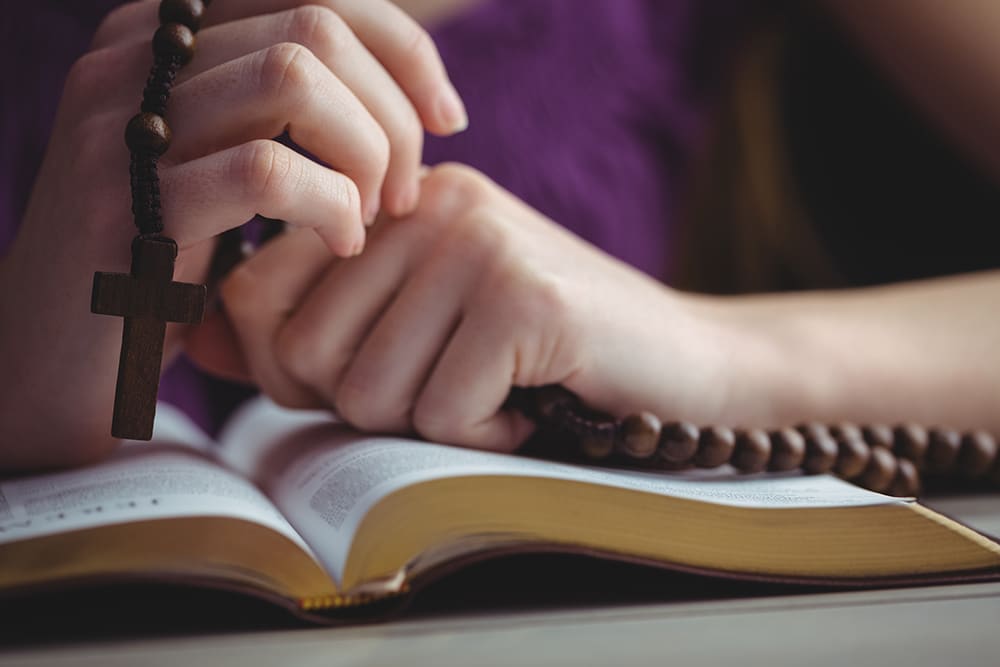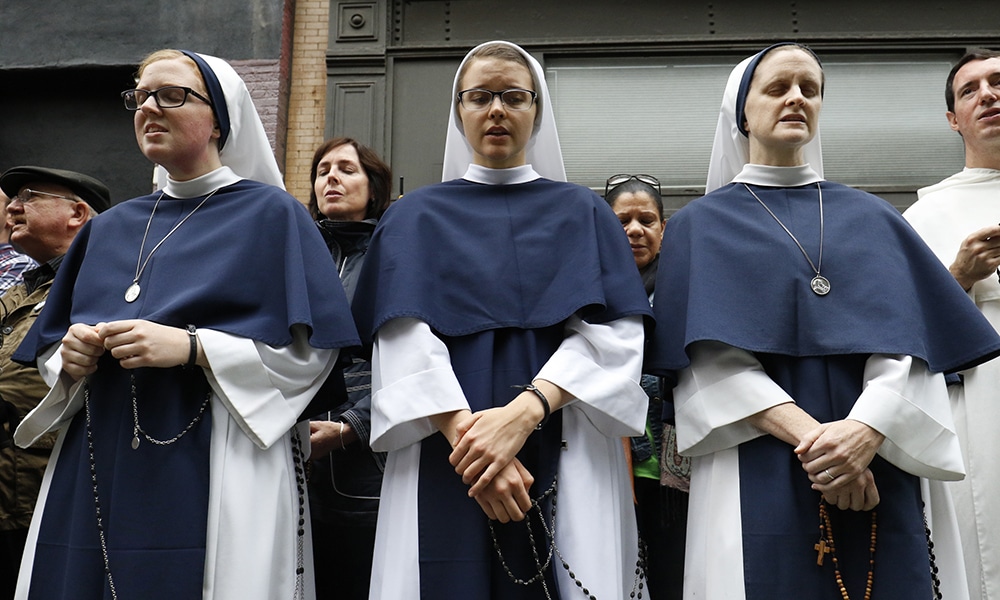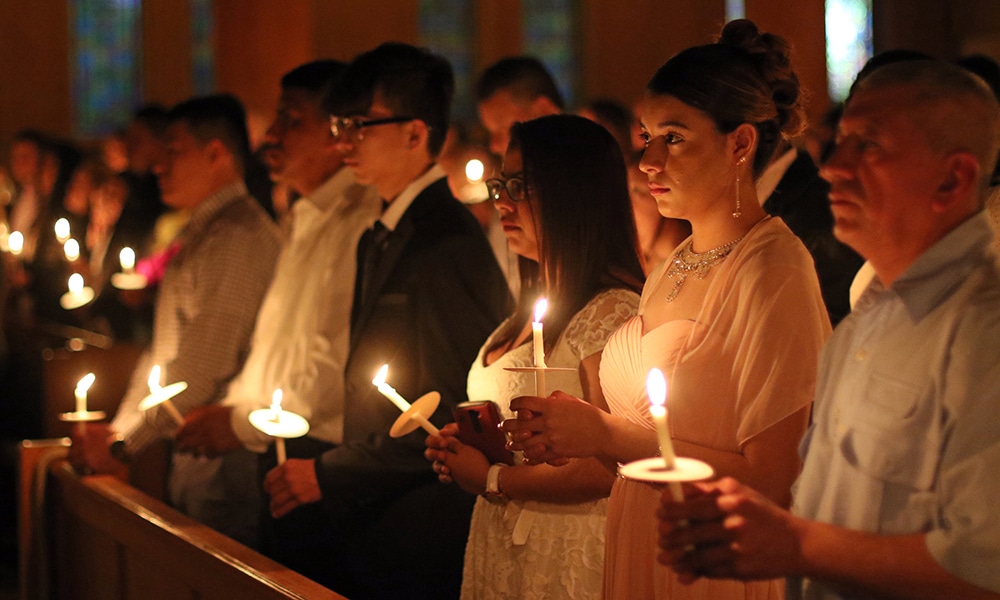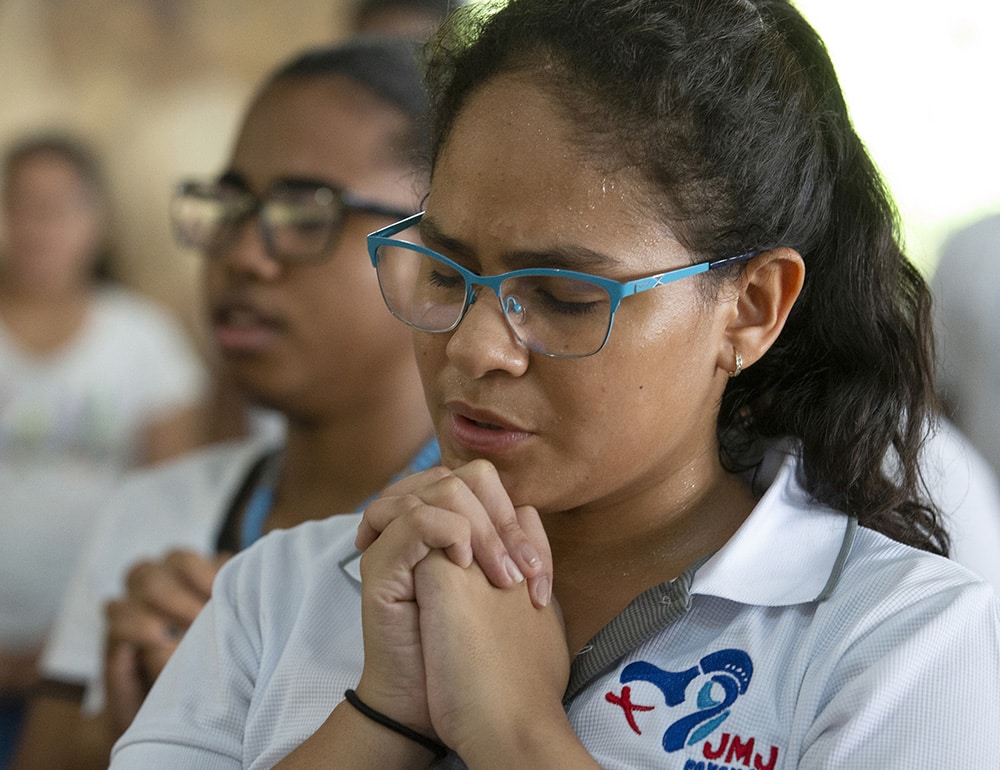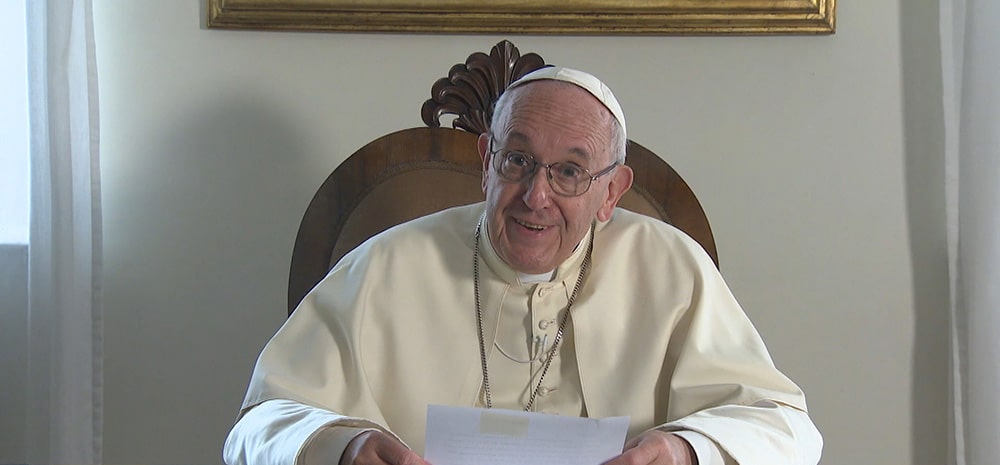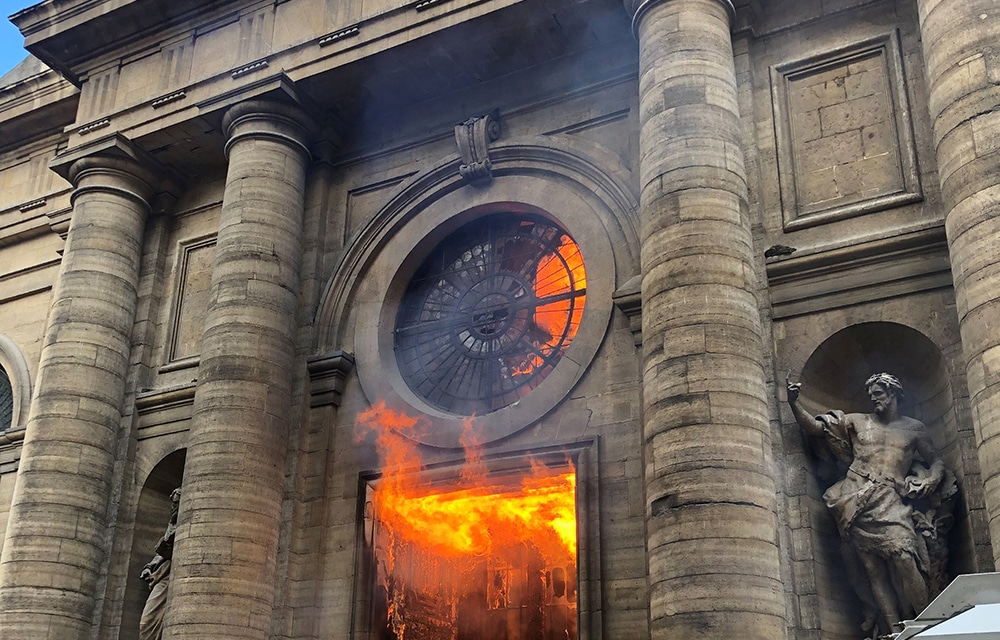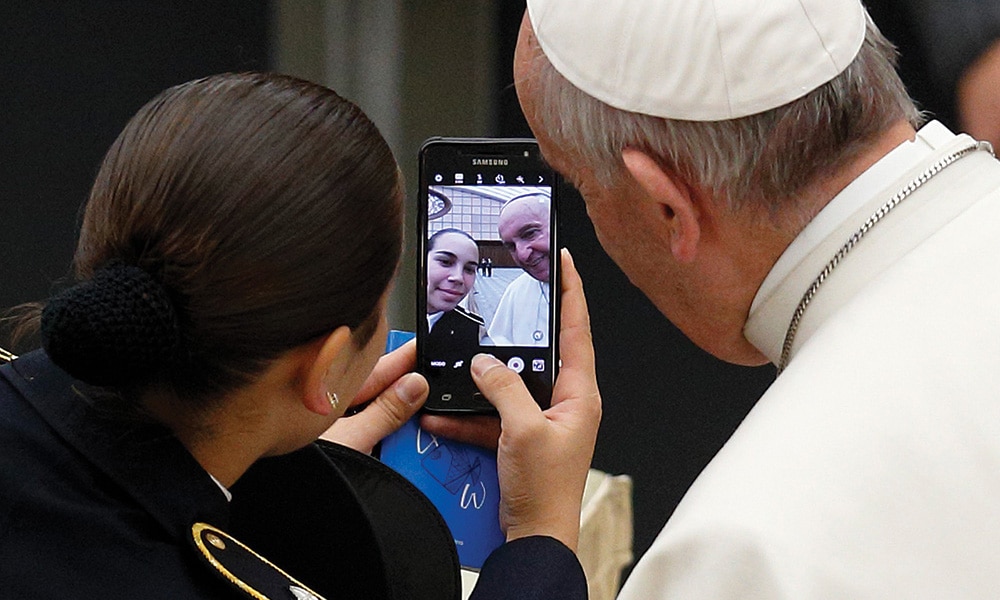 Question: I had reason to hope my niece was going to convert to the Catholic faith. But there were so many obstacles the Church set up that discouraged her. She was asked to go to classes, and they told her that her marriage was not valid and she would need an annulment. Further, it was necessary to wait until Easter, etc. The nearby evangelical church set up no such obstacles, and she was able to join at once and be considered a member. I hear so much talk of evangelization today, but I share my niece’s frustration. Can we not streamline this process?
Question: I had reason to hope my niece was going to convert to the Catholic faith. But there were so many obstacles the Church set up that discouraged her. She was asked to go to classes, and they told her that her marriage was not valid and she would need an annulment. Further, it was necessary to wait until Easter, etc. The nearby evangelical church set up no such obstacles, and she was able to join at once and be considered a member. I hear so much talk of evangelization today, but I share my niece’s frustration. Can we not streamline this process?
— Name withheld
Answer: There is a kind of appealing simplicity that you describe in many Protestant denominations. But there are problems with the approach that should give us pause. Ultimately evangelization is more about conversion than mere membership. We are summoned to embrace the saving teaching of the Lord and to walk according to it.
Because adults make informed decisions, the Church considers it important to teach them the fundamentals of the Faith so that they can know what it is they are agreeing to when they enter the Church. Although some of the Scriptures portray an almost instant, on-the-spot baptism, the consensus in the early Church shifted to a lengthy, three-year period of instruction (called the catechumenate) prior to baptism. This likely was because of the insight that quick conversions often led to quick departures or a falling away when the true demands of discipleship became known.
Instructions are most insisted upon for those who are unbaptized. In the case of those who are baptized and come from different Protestant denominations, the length and content of instructions will depend on their background. It is up to the discretion of the pastor who discerns with each individual what is needed. It is certainly not required for those already baptized to “wait until next Easter.”
The concerns about a person’s marital status are rooted in the very words and teachings of Jesus himself. He teaches without ambiguity that for a person to marry, then divorce and enter another marriage, puts them in an ongoing state of adultery in the “new” marriage (cf. Mt 5:32; Mt 19:1-9; Mk 10:11-12; Lk 16:18, etc). He adds rather firmly, “What God has joined together, let no one divide” (Mt 19:9).
It will be further noted that when the Lord was evangelizing the woman at the well, he brought her to a moment of conversion, and she asked for the gift of faith. But the Lord Jesus saw fit to first raise with her the fact that she had been married five times and was now living with a man outside of marriage. Her conversion would not be complete or adequate until she was willing to live chastely. Then the graces could flow.
For reasons of their own, many Protestant denominations have decided to practically overlook such passages. But the Catholic Church takes the Lord’s teaching on these matters rather seriously, as he clearly intended that we should. In some cases, after an investigation based on evidence, the Church may use its power to bind and loose, to indicate that the previous marriage was not “what God has joined,” and it recognizes the first marriage as null. A person’s current marriage then can be blessed and recognized. But we simply cannot set the Lord’s words aside as if they were of little importance.
Thus some conversions to the Catholic faith will take some time to be faithful to the teachings of the Lord and the nature of true conversion. It is worth the diligence required.
Msgr. Charles Pope is the pastor of Holy Comforter-St. Cyprian in Washington, D.C., and writes for the Archdiocese of Washington, D.C., blog at blog.adw.org. Send questions to msgrpope@osv.com.

